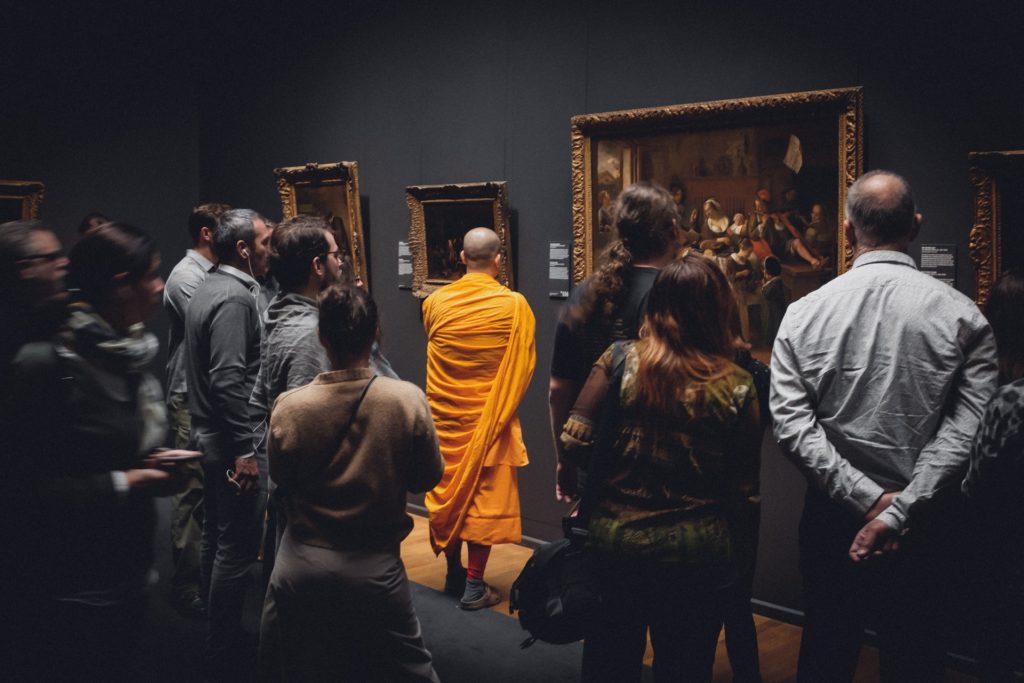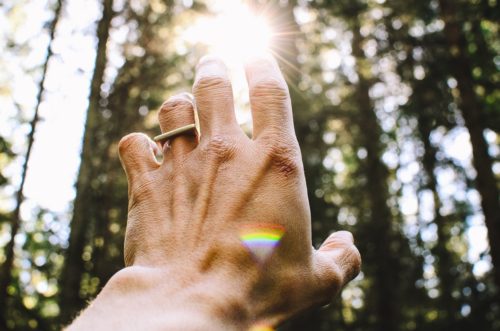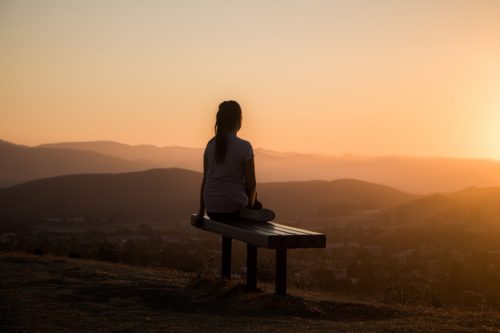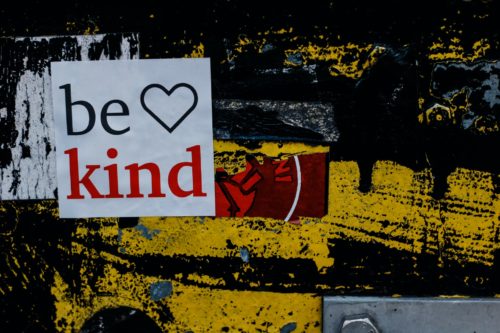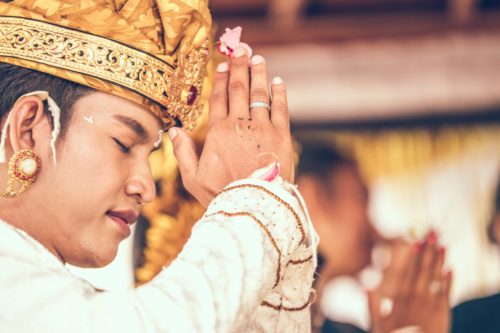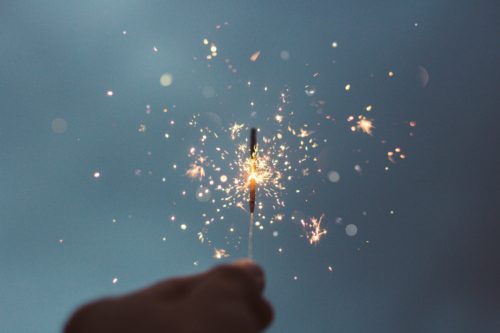To many, the word “sacred” holds immense religious significance that is connected to the spiritual dimension of man – which is just one way to interpret it. To some, it may refer to something as trivial as a lucky charm bracelet. Whilst to the rest, it may be a person they hold in high regard on love, compassion, and respect. But what is sacred to you?
As some may say, the answer to that question is infinite. There are no boundaries to what one holds as sacred. Be it an idea, item, memory, place – or even a person.
In the current state of the world, it is believed to be imperative for everyone to have a little faith in their heart. Many people have someone or something they cherish enough to keep their own selves grounded – making it sacred for them. However, in these times of chaos, the feeling of being at peace and tranquility only feels sometimes like wishful thinking.
The Two Aspects of Sacred
As mentioned, the word sacred itself sparks two ideas in a person’s head.
One – something that relates to the religion and spirituality of a person. Be it a Christian, Muslim, Jew, or an atheist, people tend to hold on to possessions, beliefs, or customs, that are sacred to them religiously. Every religious or even non-religious person has something they feel safe and protected by. By understanding what is sacred to them, a person’s life is easily filled with both dedication and devotion. To not have this blessing is equivalent to not having water in a desert: the feeling of helplessness.
Two – people interpret the word ‘sacred’ in reference to something that is precious and cherished. To have something, or someone, to appreciate and value is a true blessing. It doesn’t have to be just one thing, memory, place, or a person. Everyone and everything has a different level of importance and value; hence, to have multiple possessions or beliefs is not something to be embarrassed by. What is sacred to you may not be sacred to somebody else and vice versa, but that is the beauty of it.
Bliss: A Feeling or A State? Or Both?
Another concept that is tightly connected to sacredness is bliss. Feelings, physical or emotional states are only temporary, and people are looking for the right path to bliss. When one has something that is sacred to them, some of what’s making it sacred is finding bliss by cherishing and following that specific something. So the question arises, where does “bliss” lie in between these two paradigms?
Some may believe that bliss is just a mere emotion – confusing it with happiness. But to the people who carry the weight of their sacred items close to them, it holds a much deeper meaning.
Bliss is when you close your eyes on a stream, as water flows past your dangling feet from the rock you have occupied. Bliss is the wind caressing your skin while you listen to the birds chirp in the trees at dusk. It is when you’re engrossed in your favorite book in the middle of the night, and also when you see your loved one’s face as it shines with the excitement of opening presents on a Christmas morning.
Bliss is a state that you lose yourself in, all while enjoying the little things in life.
What is Sacred to You?
To ask yourself this question may not seem like something that holds any importance. Though, contrary to popular belief, it is.
Asking yourself what is sacred to you helps you reflect upon what you believe in. This could include your thoughts, morals, and values. It helps you understand your own self better through the contemplation and comprehension of your own thoughts. Though your thoughts are not who you are, observing them is key to grow towards bliss.
By understanding what is sacred to you, you can keep your emotional health in check. People fail to recognize their deteriorating mental health until they are diving in a void of confusion as to what they hold sacred and why. Typically, people tend to make comparisons such as:
- which memory provides more sense of delight and contentment
- what thing brings relief and which person helps you remain calm.
Another advantage of filtering your thoughts is the control you gain over the human brain. Amidst looking for the good memories, you push back the negative ones. Other people refer to that as self-mastery skills.
The thought controlling process of determining what is sacred to you contributes to your everyday life. Since not everything can go our way, knowing what is most important for you helps you remain grounded and minimizes the anxiety and panic, as you are focusing on what’s true and important for you, rather than the illusions that so often surround us in life.
Another everyday life trait that is improving is simple decision-making. By figuring out what provides you with the serenity you crave, unintentionally, you learn critical analyzation. Therefore, this facet works great when it comes down to an important decision that you face – which option is more important (or sacred) to you?
Sacred Possessions and a Blissful State
As we have already established, anything you deem sacred to yourself is something that provides you with comfort, support, and higher meaning. You feel at peace and content with what is going on around you. Again, as aforementioned, there are no boundaries to what can be sacred to you. It can be a person, place, item, song, thing, or even just a hobby.
The people who deduce religious and spiritual meanings from “sacred” might find comfort in their religious practices. Going to churches, mosques, monasteries, or worshipping the sun, moon and stars are just examples of practices that are sacred to many people across the world. It provides their heart with the warmth it lacks.
Regarding possessions, some people tend to collect things that hold sentimental values and hold on to them tightly. For instance, rocks from a beach when they visited it for the first time, the movie ticket from their first date, stuffed toys won at carnivals or old antique jewelry pieces. They associate memories with little things, and that’s their answer to what is sacred to them.
For the people who are at peace by just being at a place, sacred may have a different meaning. The unexplainable feeling of being free, and of the freedom you breathe in the air at a creek may be what is truly sacred to them.
Additionally, there are many people who hold on to memories and to the people that they love. For them, bonds of family and friendship could be sacred.
Thinking of all these makes you believe that maybe life isn’t all that hard, and maybe you just need to look for the calm in the little things. Maybe the secret to finding what is sacred to you isn’t that much of a secret at all, rather than a decision you are making to strengthen your spirit and follow your bliss.
Finding and Maintaining the Sacred Element in Life
To this day, understanding what is sacred to you stays a mystery for many people. However, finding the sacred things in life isn’t a tough job at all. All you need to do is realize and acknowledge the things that bring you comfort, meaning, and peace. It may be something that you do every day, or something that you are yet to try. The only key to finding what is sacred to you is to be open-minded, to explore, and to accept.
In order to discover what is sacred to you, you need to look at things with different perspectives. You will have to accept the new challenges life will throw at you and welcome change with open arms. Through the process of change, there will always be something that you hold close to your heart – and that is what is sacred to you.
Will It Always Be Sacred?
A major misconception surrounding this concept is “sacred remains the same”, and it couldn’t be further from the truth. The base of what is sacred to you may remain the same, but nothing in life is ever constant, as you can even wake up one day and understand that your identity is not reflecting who you really are.
Your hobby of collecting “things” might remain the same, but you might not collect the same stones you started off with. You might always find solace in natural scenery, but it might not be your childhood treehouse anymore.
So yes, even after you find your “sacred”, the search may not ever stop. You are only human and human emotions change. Attractions differ whilst growing up. Maturity changes you to a great extent.
However, there’s always something that will help you identify your passions. The things, places, and people who put you in a blissful state of mind is all that is sacred to you.
The Final Word
Everyone deserves peace and calm, but not everyone is lucky enough to know where to find it. Discovering what is sacred to you can definitely set you free. It will give you space to pull yourself back into line if you ever detract. Your sacred connection is always where your strengths lie, as there is a reason why you are finding it sacred, as we are all connected and part of something greater than us.
For everything you love at one point, there eventually comes a replacement. There’s always a sea of possibilities to choose from, and your blissful wonderland is only one critical analyzation away. The more you lose yourself in the ways of nature, the more at peace you are. Once you understand what is sacred to you, you can find solace in things that bring you closer to yourself, and perhaps awaken into a new awareness.

